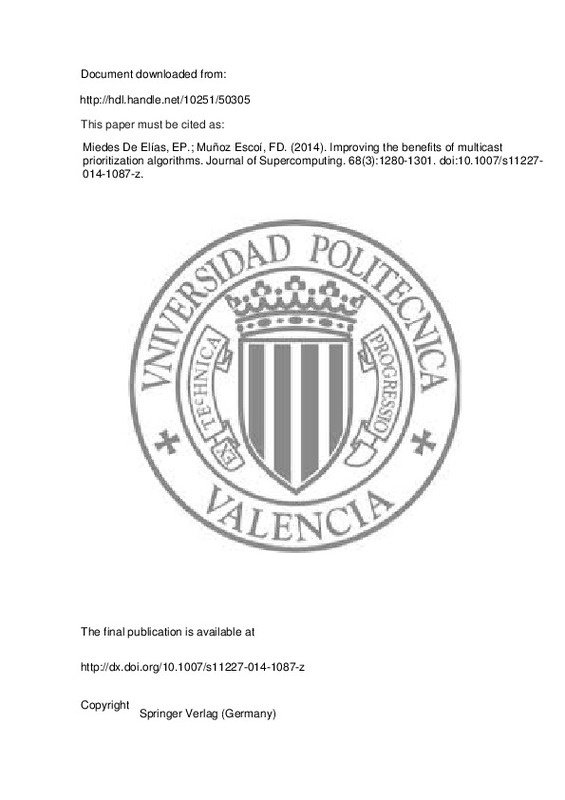Amir Y, Danilov C, Stanton JR (2000) A low latency, loss tolerant architecture and protocol for wide area group communication. In: International Conference on Dependable Systems and Networks (DSN), IEEE-CS, Washington, DC, USA, pp 327–336
Chockler G, Keidar I, Vitenberg R (2001) Group communication specifications: a comprehensive study. ACM Comput Surv 33(4):427–469
CiA (2001) About CAN in Automation (CiA). http://www.can-cia.org/index.php?id=aboutcia
[+]
Amir Y, Danilov C, Stanton JR (2000) A low latency, loss tolerant architecture and protocol for wide area group communication. In: International Conference on Dependable Systems and Networks (DSN), IEEE-CS, Washington, DC, USA, pp 327–336
Chockler G, Keidar I, Vitenberg R (2001) Group communication specifications: a comprehensive study. ACM Comput Surv 33(4):427–469
CiA (2001) About CAN in Automation (CiA). http://www.can-cia.org/index.php?id=aboutcia
Défago X, Schiper A, Urbán P (2004) Total order broadcast and multicast algorithms: taxonomy and survey. ACM Comput Surv 36(4):372–421
Dolev D, Dwork C, Stockmeyer L (1987) On the minimal synchronism needed for distributed consensus. J ACM 34(1):77–97
International Organization for Standardization (ISO) (1993) Road vehicles—interchange of digital information—controller area network (CAN) for high-speed communication. Revised by ISO 11898-1:2003
JBoss (2011) The Netty project 3.2 user guide. http://docs.jboss.org/netty/3.2/guide/html/
Kaashoek MF, Tanenbaum AS (1996) An evaluation of the Amoeba group communication system. In: International conference on distributed computing system (ICDCS), IEEE-CS, Washington, DC, USA, pp 436–448
Miedes E, Muñoz-Escoí FD (2008) Managing priorities in atomic multicast protocols. In: International conference on availability, reliability and security (ARES), Barcelona, Spain, pp 514–519
Miedes E, Muñoz-Escoí FD (2010) Dynamic switching of total-order broadcast protocols. In: International conference on parallel and distributed processing techniques and applications (PDPTA), CSREA Press, Las Vegas, Nevada, USA, pp 457–463
Miedes E, Muñoz-Escoí FD, Decker H (2008) Reducing transaction abort rates with prioritized atomic multicast protocols. In: International European conference on parallel and distributed computing (Euro-Par), Springer, Las Palmas de Gran Canaria, Spain, Lecture notes in computer science, vol 5168, pp 394–403
Mocito J, Rodrigues L (2006) Run-time switching between total order algorithms. In: International European conference on parallel and distributed computing (Euro-Par), Springer, Dresden, Germany, Lecture Notes in Computer Science, vol 4128, pp 582–591
Moser LE, Melliar-Smith PM, Agarwal DA, Budhia R, Lingley-Papadopoulos C (1996) Totem: a fault-tolerant multicast group communication system. Commun ACM 39(4):54–63
Nakamura A, Takizawa M (1992) Priority-based total and semi-total ordering broadcast protocols. In: International conference on distributed computing systems (ICDCS), Yokohama, Japan, pp 178–185
Nakamura A, Takizawa M (1993) Starvation-prevented priority based total ordering broadcast protocol on high-speed single channel network. In: 2nd International symposium on high performance distributed computing (HPDC), pp 281–288
Rodrigues L, Veríssimo P, Casimiro A (1995) Priority-based totally ordered multicast. In: Workshop on algorithms and architectures for real-time control (AARTC), Ostend, Belgium
Rütti O, Wojciechowski P, Schiper A (2006) Structural and algorithmic issues of dynamic protocol update. In: 20th International parallel and distributed processing symposium (IPDPS), IEEE-CS Press, Rhodes Island, Greece
Tindell K, Clark J (1994) Holistic schedulability analysis for distributed hard real-time systems. Microprocess Microprogr 40(2–3):117–134
Tully A, Shrivastava SK (1990) Preventing state divergence in replicated distributed programs. In: International symposium on reliable distributed systems (SRDS), Huntsville, Alabama, USA, pp 104–113
Wiesmann M, Schiper A (2005) Comparison of database replication techniques based on total order broadcast. IEEE Trans Knowl Data Eng 17(4):551–566
[-]







![[Cerrado]](/themes/UPV/images/candado.png)


